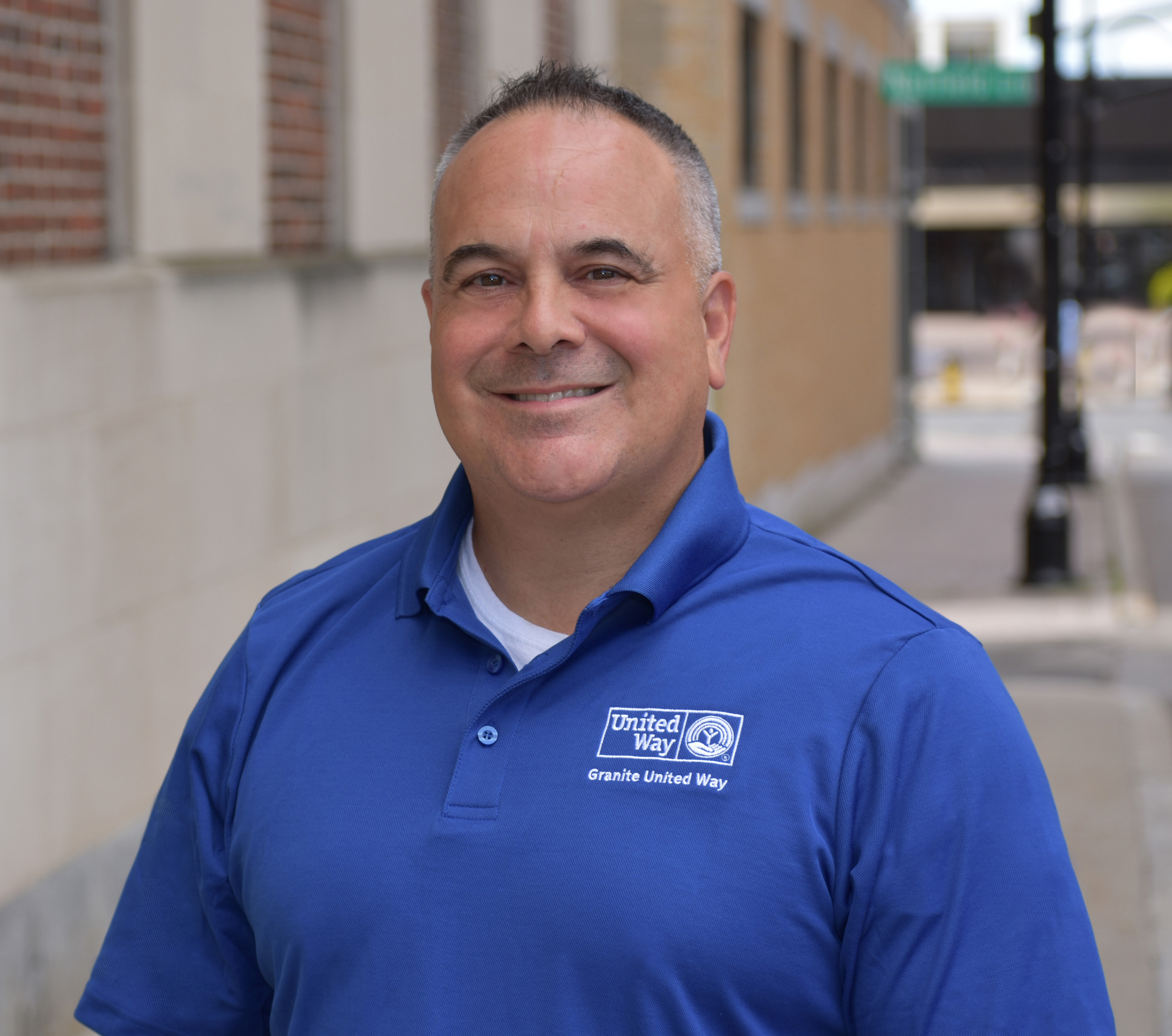
“There is uniqueness to our communities and how we help and how we come together. But we have housing challenges in every community we serve. We have child care challenges in every community we serve. We have behavioral health and substance misuse challenges across the board.”Patrick Tufts says Granite United Way is probably the “best known and least known” nonprofit in New Hampshire. As president and CEO, Tufts oversees an organization that was established in New Hampshire nearly a century ago and has national roots 140 years old.
“We have been the largest philanthropy in the world for the majority of my time involved,” Tufts said during a recent interview for NH Business Review’s “Down to Business” podcast.
The nonprofit, long known for promoting volunteerism and philanthropy through workplace campaigns, distributes funds to 800 nonprofits across the New Hampshire.
Tufts recently announced he will step down in December after 20 years leading Granite United Way. During the interview with NH Business Review, Tufts talked about how much the organization has adapted during his tenure to meet the state’s changing needs.
(This interview has been edited for space and clarity.)
Q. Let’s talk about your new funding model, which is your fourth in the past 20 years.
A. Changes coming out of the pandemic, as well as some trends that we had seen in the last five or 10 years that have impacted United Way, have resulted in us really re-working how we want to get resources to local nonprofits.
We realized that our two-year funding cycle, while it provided a select number of organizations with some sustainability and a budget number they could count on, also left out a lot of nonprofits who had immediate needs.
We decided that we want to be much more dynamic. We want to be able to have conversations with nonprofits every couple of months, and we want to get them dollars and pay them those dollars within three or four weeks of them asking.
One of the other things that we’ve tackled in this rebrand of ourselves is equity and inclusion. By being so business driven and focused on these two-year cycles and the bigger dollars, a lot of smaller nonprofits were left out. They didn’t have the business acumen to pull together a really complicated proposal.
Q. Your staff is up to more than 100 and scattered around the state. How has your footprint expanded over the time you’ve been with Granite United Way?
A. New Hampshire has changed. This was really difficult because, if you’re in the North Country, you don’t really think about what’s going on in Salem, Derry and Manchester. If you’re in Manchester, you don’t really think about what’s going on in the Upper Valley. If you’re in Concord, you don’t think about what’s going on in Portsmouth.
But one of the things as a United Way that we see is everyone in these communities are struggling with the same things.
There is uniqueness to our communities and how we help and how we come together. But we have housing challenges in every community we serve. We have child care challenges in every community we serve. We have behavioral health and substance misuse challenges across the board.
We focus on what we are trying to do together, not the localness of how we have to do it. We grew through some mergers and acquisitions. I think I’ve been part of 12 mergers, acquisitions and transitions. And it just makes us stronger.
Q. Homelessness is an ongoing problem throughout the state. You were directly involved in a fairly recent campaign. Tell us a little about where that is and what needs to happen.
A. It’s a very complex issue, and my advice on this is we all need to work together. I think there’s been great leadership out of the mayor’s office and that needs to continue. We can’t point fingers. There is no one agency that is responsible for addressing homelessness.
It is not just a Manchester issue. It’s a state issue. It’s a national issue. If you go to any mid-size city in the U.S., you’re going to see homeless and vulnerable people. It’s very driven by behavioral health issues. It’s very driven by the lack of affordable housing, and it’s terribly impacted by substance misuse.
United Way has run campaigns to do this. We’ve brought staff on board to do it. We’ve created facilities specially targeted to do this. But it’s got to be all of us. It’s got to be Families in Transition. It’s got to be Easterseals, Amoskeag Health, Waypoint, all working together, Catholic Charities. All those organizations are doing a great job. But sometimes we have to set a common vision and a common path in order to make a difference.